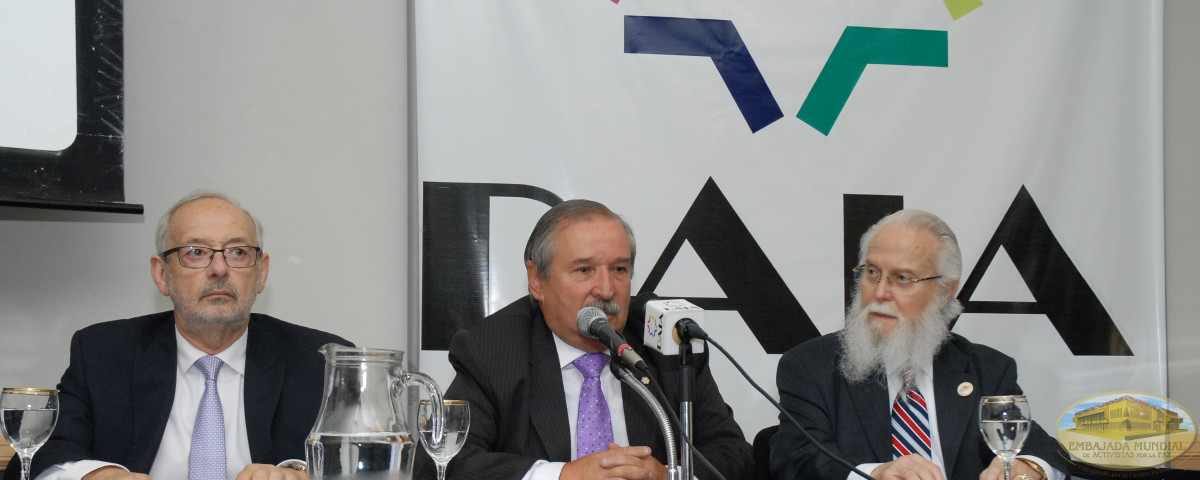
Speech Given at the DAIA in Memory of the Victims of the Shoah
Monday, January 28, 2013
DAIA Headquarters
(Delegation of Argentine Israeli Associations)
Buenos Aires, Argentina
Mr. Julio Schlosser, President of the DAIA; Mr. Guillermo Borger, President of the AMIA; Ms. Eugenia de Unger and Holocaust survivors present; Mr. Ariel Stofenmacher, Executive Vice President of the Seminario Rabinico; Mr. Miguel Toimaher, representative of the rabbinical seminary; ladies and gentlemen, good morning.
The power of a story narrated by its protagonist is something without comparison. The vividness of memories and the precision of details, among many other things, are aspects that verify the story’s veracity and capture the attention of the listener. But above all, they manage to convey a message, to create a deep and personal understanding between the narrator and the audience.
For several years, we have observed the commemoration of the victims of the Shoah; we have heard the devastating testimonies full of unjust and inhumane tragedy, in which pain, despair, and helplessness have mixed with hope, though not in equal proportion.
The Holocaust, or Shoah, is a stain of indignity and opprobrium (shame, public disgrace) in the history of the mankind, and although some people and nations seek to hide or lessen its magnitude, by gathering here today we are honoring the memory of the victims, for it is a greater shame to cast their memories into the sea of forgetfulness.
Therefore, it should be forbidden to forget the Holocaust, because forgetting it would be a crime.
In addition, upon reflecting on both the stories of survivors and the profound ignorance about the Holocaust that we see today—especially among youth—we wanted to find a way to preserve these testimonies despite the physical absence of the protagonists.
We also wanted to create opportunities for reflection on the importance of the determination and individual courage it takes to defend human rights, remembering not only those who have been declared "Righteous Among the Nations", but also hearing directly from Holocaust survivors about other heroes who remain anonymous but who risked their lives to save others, those who are now destined to be the role models we must follow.
That is how we began the project that is being initiated in Argentina today; Traces to Remember has already produced a very positive effect in the places where it has been introduced.
Although at first glance, Traces to Remember may seem to be focused on the Shoah and the testimony of the survivor, in reality, it is a project directed to the entire human race with the purpose of protecting the fundamental rights of every human being and seeing to it that each individual becomes an upholder of the life and dignity of every man, woman, and child who lives on this planet earth.
We have taken this project to universities, diplomatic offices, schools, libraries… and in every place, the results have been remarkable and wonderful. For not only does this project serve to eliminate lack of information about the Shoah, but it simultaneously raises awareness about the history of the people and the State of Israel, it’s achievements and great contributions in the different fields of knowledge, arts and sciences throughout history.
We are therefore pleased to initiate this project in Argentina, and we are certain that it will produce beneficial effects here as well, as it will be of help in uprooting the seeds of hate and intolerance.
And to those who insist that it’s time to “turn the page”, to “move forward and forget”, we say to them: “We will ‘turn the page’ when we are completely certain that we have learned the lesson."
Thank you very much.
Dr. William Soto Santiago
Ambassador of the Global Embassy of Activists for Peace